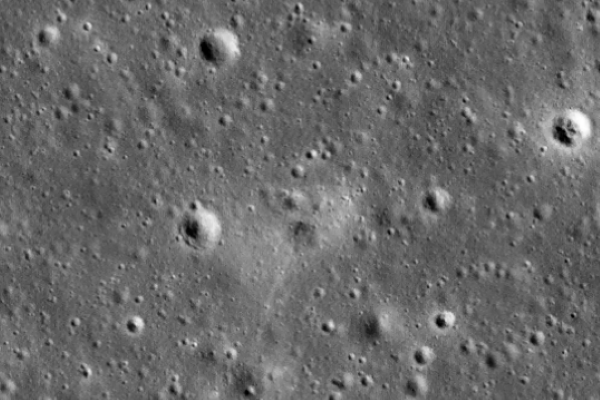NASA found and photographed the site on the moon where Israel’s Beresheet spacecraft crash-landed in April.
By Benjamin Kerstein, The Algemeiner
The small lunar probe was built by SpaceIL and Israel Aerospace Industries, and was the first privately-funded spacecraft to reach lunar orbit. It was launched on Feb. 22 and carried a plaque with the Israeli flag and the words, “small country, big dreams,” as well as, “the people of Israel live” in Hebrew.
Minutes before the craft was due to land, its main engine shut down and communication with the spacecraft was lost. The engine later restarted and communication was restored, but too late to arrest the craft’s velocity, which was too fast for a safe landing on the lunar surface.
Communication was then lost for good, with the working assumption being that the craft was destroyed on impact. This has now been confirmed by the NASA photographs.
Following the mission failure, Israeli Prime Minister Benjamin Netanyahu told the small group of VIPs who assembled at mission control to watch the landing attempt, “If at first you don’t succeed, try again.”
The Israeli government has already pledged support for a Beresheet 2.0, which will also be built by SpaceIL.
According to NASA, in photographs taken on April 22 by its Lunar Reconnaissance Orbiter (LRO), the impact site where Beresheet crashed appears as a dark smudge about ten meters wide on the moon’s surface against a background of craters.
🛰️
\
\
\
🌑
New image! 📸 Our @NASAMoon orbiter captured this visual of the lunar impact site from @TeamSpaceIL‘s Beresheet spacecraft. If you look close, there are also clues about a possible man-made crater on the Moon: https://t.co/WgYqoxEMhS pic.twitter.com/jxdr9VV8Lq— NASA (@NASA) May 15, 2019
NASA stated that the pictures were taken from 56 miles above the impact site, and “from so far away, LROC could not detect whether Beresheet formed a surface crater upon impact.”
“It’s possible the crater is just too small to show up in photos,” noted the space agency. “Another possibility is that Beresheet formed a small indent instead of a crater, given its low angle of approach (around 8.4 degrees relative to the surface), light mass (compared to a dense meteoroid of the same size), and low velocity (again, relative to a meteoroid of the same size; Beresheet’s speed was still faster than most speeding bullets).”
NASA is attempting to bounce laser pulses off Beresheet’s retroreflector, which may have survived the impact.
Despite its ultimate failure, the Beresheet mission made Israel only the seventh country to launch a spacecraft that successfully achieved lunar orbit.
